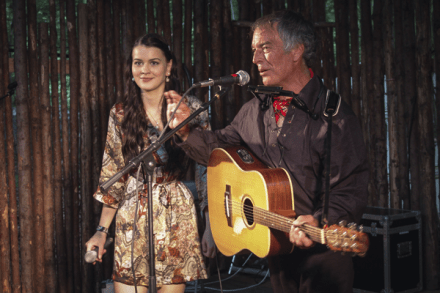Theatre review: Relatively Speaking, Disgraced
Here are your instructions. Relatively Speaking by Alan Ayckbourn is a comedy classic so you’d better enjoy it or else. The play dates from 1967 when Ayckbourn was working as a sketch writer for Ronnie Barker. It was his first hit. Notes in the programme testify to the play’s excellence. A telegram sent to Ayckbourn by Noël Coward is quoted twice. ‘Congratulations on a beautifully constructed and very, very funny play.’ Take the Master’s kindness with a pinch of salt. The script is ingeniously strung out from a rather threadbare premise. Two couples, both with infidelity problems, meet and talk at cross-purposes for an afternoon. The action opens in a

















